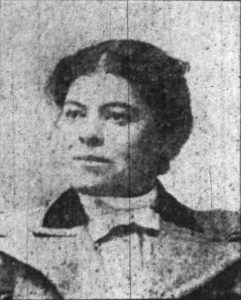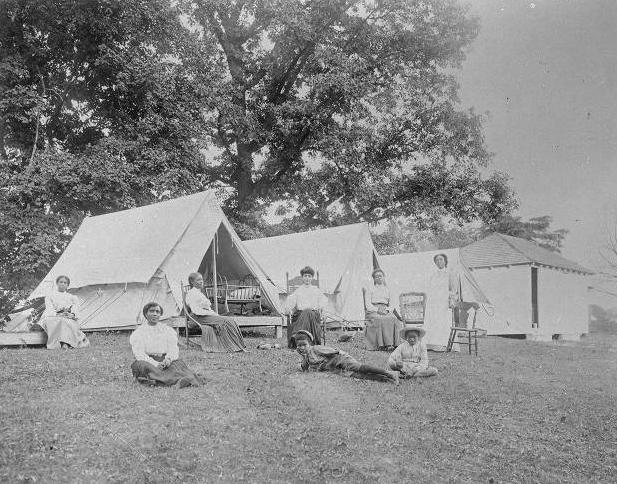
Photo info ...
Credit: Indianapolis NewsView Source
(Jan. 2, 1869-Nov. 2, 1928). Beulah Wright Porter Price was an educator, physician, and active participant in the African American women’s club movement in Indianapolis in the early 20th century. Born in St. Louis, Missouri, she moved with her mother, a widow who worked as a seamstress, to Indianapolis sometime after 1880. She started her career as a schoolteacher in the in 1889 and married Jefferson D. Porter, a mail carrier, on March 8, 1893.
Following her marriage, she gave up her position as a teacher and enrolled in the Indiana Medical College, a private proprietary school established in 1869 that admitted a small number of African Americans (see ). In 1897, Porter opened a medical practice in Indianapolis, becoming the city’s first African American woman physician. She treated mostly African American women and children.
Porter frequently interrupted her medical career whenever a need for her to return to teaching arose. In 1901, these interruptions, which historians attribute to the reluctance of people to seek treatment from an African American female doctor, eventually led her to abandon her medical practice entirely. In 1905, she became principal of the segregated Robert Gould Shaw School, a position she held for 25 years. That same year, Porter represented Black Hoosier schoolteachers at the Colored National Teachers Convention in Atlanta where she also presented a paper.
Although Porter gave up her practice, her medical expertise proved an invaluable asset to the (WIC) of Indianapolis in its tuberculosis work. With , Porter co-founded the WIC in 1905, which Fox originally established as a literary club two years prior. Poor housing and health conditions in the Black community, in particular, compelled the organization to focus on the fight against tuberculosis.
At its founding, the WIC had broadened its stated goal of self-improvement and instruction of its members to embrace community assistance and improvement. In 1905, , a settlement house in the Black community sponsored by white Indianapolis mortician , publicly announced a plan to provide care for Black tuberculous patients. The Hospital, built in 1903 to focus on TB treatment and care and attached to , excluded African American patients. The WIC quickly moved to take over and execute this project independent of any public funding or assistance.

Importantly Porter and other members of the WIC established a tuberculosis camp to treat infected African American children. In August 1905 the club secured the permission of William Haueisen, a white Indianapolis businessman, to set up an outdoor tuberculosis camp on his Oak Hill property located in the area, adjacent to Martindale on Indianapolis’ eastside which was a primary residential center of the African American community. The Oak Hill Camp was purportedly the first outdoor tuberculosis camp in the entire country. Primarily using tents for its facilities, the camp remained in operation until 1916.
By 1910, Porter was living as a boarder with the influential African American physician . Her first husband died in July 1914. His death certificate listed his marital status as “divorced.” The exact date of Porter’s divorce from him is unknown.
Walter M. Price, an Indianapolis Public Schools teacher, became Porter’s second husband on November 14, 1914. The couple resided in the area surrounding Indiana Avenue, the heart of the African American community, before moving north to 2817 Boulevard Place sometime in the 1920s.
Porter was one of the charter members of the Indiana State Federation of Colored Women’s Clubs. She served on the first management committee for the African American and as chair of its health committee. She also was a donor for the building constructed exclusively for the organization on North West Street in 1922. Porter served as an officer of the , the Parlour Reading Club, the Mayflowers Club, and the local chapter of the NAACP. She belonged to the Alpha Kappa Alpha sorority and was a member of the .

Help improve this entry
Contribute information, offer corrections, suggest images.
You can also recommend new entries related to this topic.